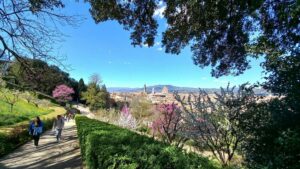Matthew Panter takes a tour of Stallion A.I in Whitchurch, a global centre of excellence in the preservation of endangered species
The Queen’s Award flag waved gently in the summer breeze at the gates of Stallion AI Services Ltd. Having driven down a couple of country lanes – hoping I was heading in the right direction – it was a welcoming sight.
Such a prestigious honour clearly highlights the important work being done in Whitchurch as it makes its mark, not just on a national scale but a regional one as well.
This is a multi-layered business but I was visiting to discover more about saving endangered species, a mission which has seen the company land a nomination for an historic prize.
Stallion AI was founded in 2000 and uses technology for genetic preservation and cloning animals such as horses, dogs and cats, via sister company Gemini Genetics.
It’s a global centre of excellence for equine semen collection, processing, storage and distribution and, in the past two decades, its specialist team has carried out in excess of 20,000 collections from over 1,200 stallions.
As I met with the towering Tullis Matson, founder and Managing Director, to look around the facilities at Stallion AI, it was fascinating to listen to all of the work carried out from its base.
There are so many facets to the business but it was Nature’s SAFE, a charity set up to preserve the cells of endangered species around the world, which we spoke about at length.
The scale of the incredible work being done in Shropshire is evident by the fact Nature’s SAFE has landed it a nomination for the Earthshot prize in 2023.
“I started off with how to try and save the Suffolk Punch and seeing if we could use technology to save heavy horses. We did that many years ago.
“About five years ago we said ‘why can’t we try this with wild animals?’
“I started looking into it and there was amazingly very little out there, other than the Millennium Seed Bank.
“There was nowhere to store endangered species so that’s when I contacted Sue Walker from Chester Zoo. The synergy has come from the equine side of our business, throwing it across to the endangered species.”
Nature’s SAFE was co-founded alongside Dr Walker, Dr Rhiannon Bolton and Kate Ashmore.
Tullis, passionate throughout our look around the facilities, becomes particularly animated when he shows me one tank in particular.
A Living Biobank, it cryopreserves live tissues and cells, including sperm and eggs indefinitely in liquid nitrogen at -196°C.
Once thawed, the cells can be used for cell culture and within breeding programmes to increase genetic diversity in populations.
“We have samples of 175 different species in this tank alone,” he says. “Which is quite incredible. There’s everything from Southern white rhinos, Asian elephants and a Komodo dragon.”
The list goes on. Mammals include the African pygmy mouse, Capybaras, Giant anteaters, Malayan tapirs, Red pandas, Sumatran tigers, the Turkish spiny mouse and West African Sitatunga.
There are samples from birds including the Bruce’s green pidgeon and Caribbean flamingo , reptiles like the Cameroon two horned chameleon and the Carter’s Semaphore gecko, plus amphibians, fish and molluscs.
“This is one of the first and largest charitable living biobanks,” explains Tullis. “It’s the future of conservation. There are species on the brink of extinction and we can bring them back to life.
“Time is not on our side,” he warns. “We are on a cliff edge and if we don’t do something now, we night not have much for the future.
“There are about six or seven million species on the planet and there are currently one million at risk. There are also 40,000 critically endangered and, to put things into perspective, there are roughly 50 to 100 species a day going extinct, which is quite frightening.
“You can see how the decline in species is happening quickly and it’s imperative that something is done.
“So this is another way of conserving species for future generations.
“We are banking them down and in theory they can be brought back to life in 20, 30 or even 1,000 years when these species are on the brink of extinction. Being able to do something like this in good old Shropshire is fantastic really.”
Nature’s SAFE (Save Animals From Extinction) works closely with Chester Zoo and the Rare Breeds Survival Trust, among others, to help conserve rare and endangered species.
“We are really proud of what we are doing here,” Tullis adds. “It’s a privilege to be able to do your bit and to try and make a difference in conservation.
“It takes us all over the world. I had a call this week from someone asking me to go to South Africa to take semen from two big tusker elephants.



